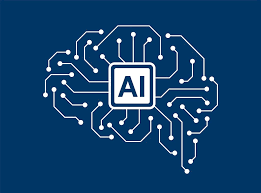
How AI is Enhancing Language Translation and Communication
Artificial Intelligence (AI) is transforming various sectors, and energy management isn’t an one of them. As the world faces growing energy demand as well as environmental issues, artificial intelligenceis being touted as a game changer for optimizing the use of resources and improving energy efficiency.
What is AI in Energy Management?
artificial intelligence (umela inteligence) refers to the simulation of human intelligence by machines able to learn and think. In the field of energy management, AI is the use of machines and algorithms that analyze vast quantities of data, make predictions and automate decision-making. These techniques aid in maximizing the energy production, distribution and consumption, making the systems more effective and responsive.
Key Applications of AI in Energy Management
Predictive analytics: AI algorithms analyze data from the past as well as real-time inputs to forecast energy demand and supply. This helps in predicting peak usage times and then adjusting production of energy accordingly, thus reducing waste and improving reliability. For instance, AI can anticipate high demand for energy periods and make sure that the power grids are ready to cope with the demand.
Smart Grids AI enhances the functionality of smart grids by optimizing how electricity is distributed. With real-time monitoring and analysis, AI can detect faults or imbalance loads and manage energy flows more effectively. This improves grid stability and reduced energy loss.
Energy Efficiency: AI algorithms can optimize energy use in industrial and building processes. By studying patterns of usage as well as environmental conditions, AI systems can adjust heating, cooling, as well as lighting systems to reduce the amount of energy consumed without sacrificing the comfort or efficiency. For instance smart thermostats make use of AI to learn the preferences of users and adjust temperatures to help save energy.
Renewable Energy Integration AI assists in the integration of renewable energy sources such as solar and wind to the electricity grid. It predicts weather conditions to optimize the production of energy from these sources and also manages their fluctuation. AI assists with the effective storage of and distribution for renewable power, ensuring a stable supply.
Demand Response: AI helps in demand response by anticipating and managing shifts in energy usage. It assists in motivating consumers to cut back or change their energy usage in peak times, thereby stabilizing the grid and reducing the need for more power generation.
Challenges and Future Prospects
However, despite its advantages however, the use in the use of AI for energy efficiency has issues like data privacy issues, the high cost of implementation, and the need for skilled personnel. Additionally the integration of AI with the existing infrastructure demands careful planning and adaptation.
Looking ahead, advancements in AI technology will bring even more advancements in energy management. Improved algorithms, greater availability of data, and sophisticated sensors will result in further efficiency and advancements. AI’s contribution to eco-friendly energy alternatives is expected to increase becoming a vital component in the quest for an environmentally friendly energy landscape.
In short, AI is revolutionizing energy management by optimizing the use of resources while also improving efficiency, as well as the integration of alternative energy sources. As technology advances, its impact on the energy industry is expected to be more profound, leading to smarter, greener energy solutions.